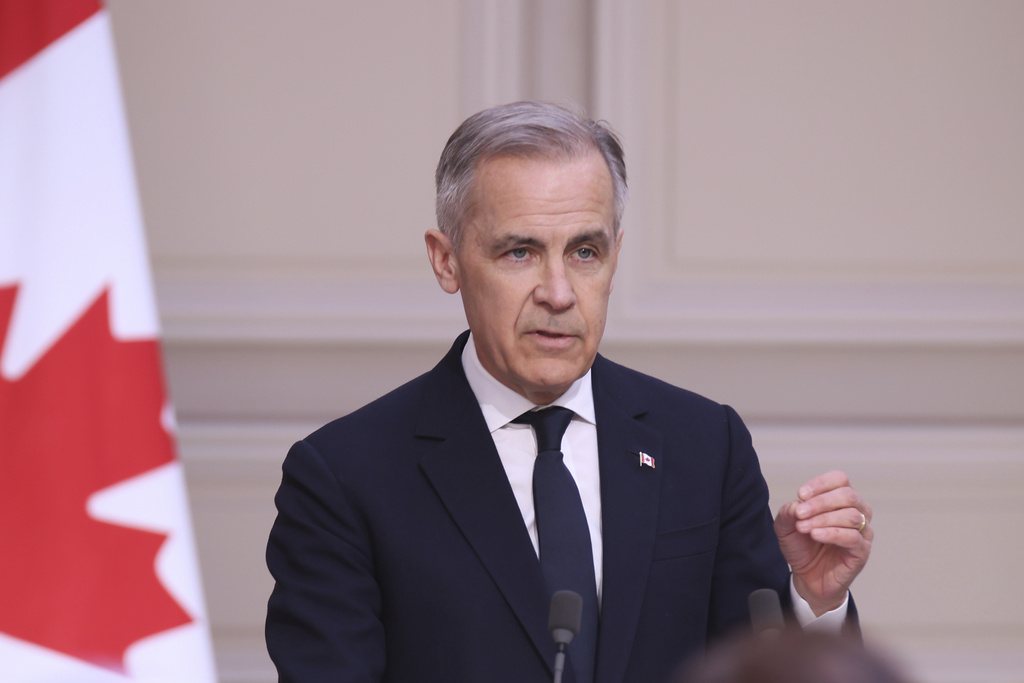Are political goals best met, and victories won, by urging misguided Democrats to consider the ideas and intentions of America’s founding fathers?
Or is a new generation of conservatives better off embracing a political fight that is more like a wrestling ring cage match than a "Firing Line" debate.
Daily Wire religion reporter Megan Basham, in response to an online exchange between conservatives from different camps, Christopher Rufo and Jonah Goldberg, sides with Rufo.
 “The beautiful losers model of the respectable Right, which Goldberg represents, would destroy our futures and our children’s futures,” Basham bluntly writes in a recent X post.
“The beautiful losers model of the respectable Right, which Goldberg represents, would destroy our futures and our children’s futures,” Basham bluntly writes in a recent X post.
Rufo, 40, a senior fellow at the Manhattan Institute, is likely best known for championing the school-choice movement, exposing DEI ideology, and fighting powerful teachers unions.
Goldberg, 56, a "Never Trump" conservative writer, is known to an older generation of conservatives for his work at National Review.

Basham was reacting to exchange on X that began when Goldberg criticized Rufo after he didn't run from an article that said Rufo is learning political tactics from Antonio Gramsci.
Gramsci, a Marxist thinker, is famous for stating Communism will win if it can conquer all of the institutions, from academia and the media to politics, rather than through a violent revolution.
"The Right is learning new political tactics," Rufo wrote. "We are not going to indulge the fantasies of the 'classical liberals' who forfeited all of the institutions. We're going to fight tooth and nail to recapture the regime and entrench our ideas in the public sphere."
When there is no 'shared understanding'
Asked about the X exchange, Blaze Media’s Auron MacIntyre agrees with Rufo and Basham's summary.
“This has been an ongoing issue, and I’m very much on Rufo’s side here,” MacIntyre said on American Family Radio Monday.
Unfortunately, speaking and demonstrating conservative ideas with the goal of winning hearts and minds, and ultimately elections, is not enough, he told show host Jenna Ellis.
For years conservatives have believed “that if you just point to these shared principles often enough people will feel compelled ultimately to comply with them and to move in that direction,” he said.

But what happens when principles like the sovereignty of the people and limited central government power aren’t shared?
The message of the founding fathers has at times proven a difficult sell across the modern landscape, and the consequences of lost elections are severe, showing up in the previous administration through the open southern border, weaponization of government resources and a government hostile toward Christianity while advancing abortion and the transgender movement.
 “What we’ve seen over and over again is that actually the Left is very good at using practical political strategies on the ground to undermine those principles," MacIntyre told show host Jenna Ellis.
“What we’ve seen over and over again is that actually the Left is very good at using practical political strategies on the ground to undermine those principles," MacIntyre told show host Jenna Ellis.
"When you cannot appeal to that shared understanding," he further warned, "then you have to understand there’s a battle for the institutions that pointing to ideology simply will not solve."
In other words, someone must win in the wrestling ring and raise the belt.
What is required now, MacIntyre argued, is for the Right to understand political power allows conservative beliefs to be defended, to move forward and be implemented.
A lesson from Samuel Adams
This can be done in practical ways, he said.
“The real tragedy," the conservative activist said, "is ultimately that conservatives lost this real politic understanding of how power actually works as part of their tradition."
 That description of weak-willed conservatives has been applied to Goldberg and to several other right-leaning Trump critics such as Bill Kristol and David French (pictured at left).
That description of weak-willed conservatives has been applied to Goldberg and to several other right-leaning Trump critics such as Bill Kristol and David French (pictured at left).
In his exchange with Goldberg, which included seven replies, Rufo cited founding father Samuel Adams who was credited by Thomas Jefferson as the "father" behind the American Revolution. Adams, Rufo wrote, "mobilized a counter-elite, produced propaganda, sieged institutions, changed the system of values, and established a new cultural hegemony."
 In his last reply to Goldberg, number seven, Rufo says Goldberg likely knows the history of late author James Burnham, an anti-Communist activist National Review contributor. Burnham, Rufo points out, studied and admired Soviet leader Leon Trotsky, and thus learned how the Left thinks and works.
In his last reply to Goldberg, number seven, Rufo says Goldberg likely knows the history of late author James Burnham, an anti-Communist activist National Review contributor. Burnham, Rufo points out, studied and admired Soviet leader Leon Trotsky, and thus learned how the Left thinks and works.
Machiavellian influence
The founding fathers were actually motivated by some ideas of Niccolo’ Machiavelli, an Italian political philosopher and statesmen in the 15th and 16th centuries, MacIntyre said.
Many might view Machiavelli as a monarchist from his popular work “The Prince,” a practical guide for rulers with advice on how to achieve and maintain power, but “his largest and most important work is his “Discourses on Livy,” which talks about his preference for the Republican form of government,” MacIntyre said.
In “Livy” Machiavelli emphasized the importance of mixed government with elements of monarchy, aristocracy and democracy combining to create a balanced and stable state.
He also stressed the crucial role of religion in maintaining social order and political stability. Religious beliefs can inspire citizens to act in the common good, he believed.
 “When you're using those ideas, when you're using that understanding of power, you're using something that is well within the classic Republican tradition of governance,” MacIntyre said.
“When you're using those ideas, when you're using that understanding of power, you're using something that is well within the classic Republican tradition of governance,” MacIntyre said.
A new way of conservatism with aggressive planned actions is necessary to reclaim many of America’s institutions, MacIntyre said.
“The large institutions, in many cases overreach of the federal government, can they be tamed? The FBI is so thoroughly corrupt that if Kash Patel and Dan Bongino can’t completely fix that thing, it probably does need to be dismantled.”
The fixing of the institutions is necessary because of 14th Amendment provisions that weakened the authority of states beyond the intentions of the founders, MacIntyre said.
“The 14th Amendment fundamentally changed constitutional governance and basically canceled the 10th Amendment. It makes it very difficult for individual states to have free institutions in the mode that federalism actually intended.”
Only so much states can do
Therefore, a strong conservative governor like Florida’s Ron DeSantis has a hard time correcting institutions at the state level.
“It would be great if we could reform all of these largest institutions into something that works for us,” MacIntyre said.
But that’s not the reality of the moment.
“If we could make our states and our localities more reliant on the type of institutions that were intended by the founders to be more localized and more under their control, then I think ultimately that's the kind of thing that prevents the larger government's failure,” he said.







